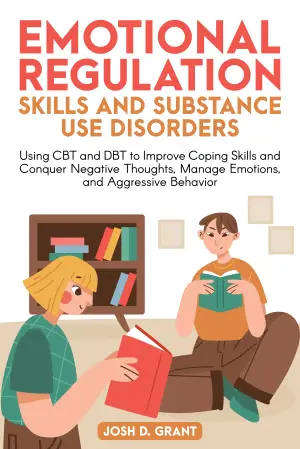I recently finished reading Stop Overthinking by Nick Trenton, and I felt compelled to share my experience. As someone who has often found myself trapped in a whirlwind of anxious thoughts and worries about the future, the book’s premise—overcoming negative thought patterns and reducing stress—immediately piqued my interest. The promise of living a worry-free life resonated with me, as I’ve often struggled with the debilitating effects of overthinking.
One of the book’s highlights is its practical approach. Trenton effectively breaks down complex psychological concepts into straightforward, actionable steps. For instance, I particularly appreciated his "4 A’s of Stress Management": avoid, alter, accept, and adapt. This simple framework helped demystify my anxiety triggers, allowing me to identify situations that lead to negative spirals. Many readers, including mkt, expressed how these techniques offered them much-needed reassurance and actionable insights.
Furthermore, Trenton introduces the "5-4-3-2-1 Grounding Technique," which I found especially effective during moments of overwhelming anxiety. The clarity in his writing made these methods easy to grasp, and I often felt that I could implement them into my daily life seamlessly. The book balances both scientific approaches to mental well-being and practical advice, making it suitable for anyone seeking to declutter their minds and stay present.
However, it’s not all perfect. I did come across some drawbacks that other readers mentioned as well. For one, a few sections felt somewhat repetitive. At times, I found myself skimming through paragraphs that reiterated concepts already introduced earlier in the text. This repetition could potentially dilute the book’s impact for some who are looking for a more concise guide. Additionally, formatting issues were also noted by several readers—badly formatted sections and pages bound out of order detracted from the overall reading experience for them, though I didn’t encounter this issue myself.
Despite these minor setbacks, I found the content at the core of Stop Overthinking to be truly helpful. It addressed the exhausting situation of being ensnared in a loop of anxiety and offered real solutions to break free from this cycle. The book provided a psychological pathway to rewire my thoughts, and by the end, I felt more confident in managing my anxieties.
Moreover, the conversational tone and relatable anecdotes from Trenton made for a warm reading experience. His background in behavioral psychology adds credibility to his narratives, and I enjoyed how he integrated personal stories, such as his own experiences growing up in rural Illinois with his dachshund, Leonard. This connection made the book not only informative but also engaging.
In conclusion, I wholeheartedly recommend Stop Overthinking for anyone grappling with excessive worry or anxiety. While there are some areas for improvement, the positive aspects far outweigh the negatives. Trenton’s accessible writing style, combined with practical methods, equips readers with tools to take control of their mental habits. If you’re ready to reclaim your peace and live in the present, this book might just be what you need. Ultimately, I give it a solid 4.5 out of 5 stars—not perfect, but certainly impactful.








